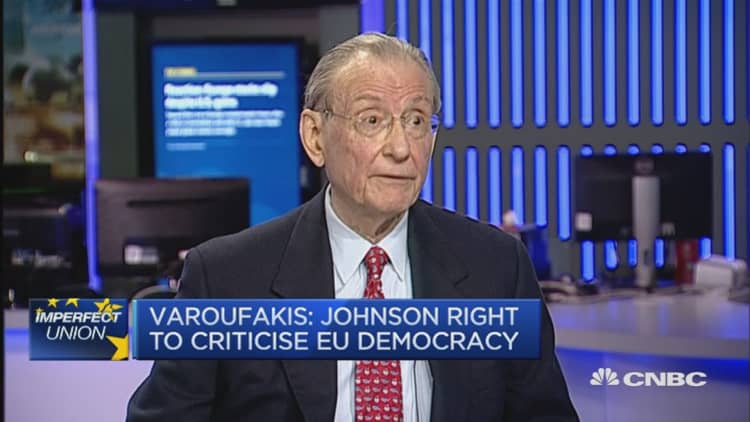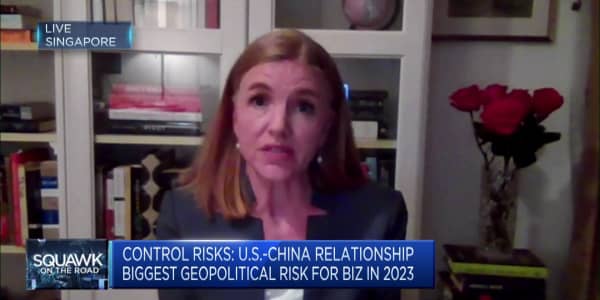The recent developments in the European Union show that discord over the migrant crisis could end up fragmenting the EU, threatening to cut off their political oxygen to deal with other challenges, like Brexit or the Greek debt crisis.
EU interior ministers are set to meet in Brussels on Thursday to discuss the migrant crisis after western Balkan nations slammed shut their borders (the Balkan route used by hundreds of thousands of people in recent months), exacerbating a dire humanitarian situation on the Former Yugoslav Republic of Macedonia frontier. The talks come after Slovenia, Croatia and Serbia barred entry to transiting migrants from midnight Wednesday.
On Wednesday, German Chancellor Angela Merkel blamed European nations for "unilaterally" shutting the Balkan route for migrants, criticizing the de facto closure. "This is not the solution to the overall problem," she said at a meeting of her own party CDU in Bad Neuenahr, in the federal state of Rhineland-Palatinate.
Mentioning the plight of refugees stranded in Greece, she said this will not go well in the long run and stressed: "We can not make nice in 27 countries and have a country dealing alone with the problem." It is important to find a European balance, she said, adding, "This will be a big task."
Merkel's comments clashed with EU President Donald Tusk, who earlier had welcomed the change, saying the Balkan states were simply implementing an important part of the EU plan to tackle the refugee crisis. Alexis Tsipras, the Greek Prime Minister, came to the defense of Angela Merkel. He responded to Donald Tusk through Twitter, saying: "The Western Balkans route has come to an end due to unilateral actions by certain countries. EU has no future if it goes on like that."
The refugees throughout Greece are currently estimated at 41,973, according to data released Thursday by the Special Management Coordinating Body for Refugee Crisis, a special department set up by the Greek government.

In the last 24 hours, an additional 2,373 migrants reached the Greek islands, bringing the total number of refugees in the islands in 9,428.
On Thursday morning in Idomeni camp, on the border of Macedonia, stranded refugees were estimated at 12,000.
The Greek government, aiming to persuade refugees to move to accommodation structures rather than living in tents on the mud and dirt near the border, is handing out brochures to inform refugees about the available accommodation facilities.
This situation constantly worsens financial conditions of Greece. OECD's Economic Survey of Greece published on Thursday said that if the refugee crisis further intensifies, the broader regional economy of Greece would suffer, with severe implications for growth and fiscal balances.
Presenting a report in Athens on Thursday, in a meeting with the Greek Prime Minister Alexis Tsipras, OECD Secretary-General Angel Gurría said that the refugee crisis is posing major problems for the Greek economy and its recovery. "Greece needs to receive significant help to address this new challenge," he said.
According to the OECD report, the preliminary cost is around 0.35 percent of GDP in 2015 ($446 million). "If the foreseen contribution of the European Union turns out to be insufficient, it would result in added pressure on the Greek budget," the report said.
The OECD pointed out the issue of continuous health monitoring for the 1.35 million immigrants and refugees that have already entered the country in the last months.
Over the next three years, the EU will be preparing to allocate 700 million euros ($765 million) for humanitarian aid in countries that receive refugees, primarily for Greece. But finding the money is not easy.
The European Parliament on Wednesday highlighted the MEP's note that the EU budget has already provided an immediate response to the ongoing refugee crisis, but they stress that this crisis is far from over and that "substantial additional financial means are required" to tackle it.
The representatives also expressed deep concern over the contributions from the low level of member states to the two existing crisis Trust Funds — the Regional Trust Fund for Syria and the Emergency Trust Fund for Africa — and that "in the refugee crisis, solidarity is being manifested unevenly across the member states."
According to some analysts, deep divisions over how to cope with a flood of migrants pose a threat to the EU's values and global standing and may diminish its ability to act jointly to reform EU and the euro zone. Many believe some firm decisions will be made regarding the future of the EU at the forthcoming summit of European leaders, set for March 17 in Brussels.
— By Nasos Koukakis, special to CNBC.com







